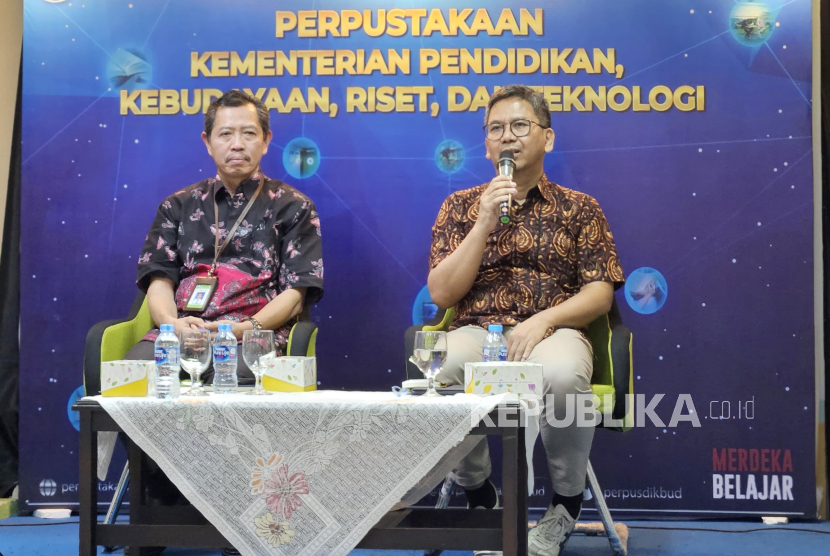REPUBLIKA.CO.ID, JAKARTA -- Chairman of the Indonesian Publishers Association (IKAPI) Arys Hilman Nugraha stated that not all literary works currently in circulation are suitable for children and students. Therefore, a curation process involving practitioners and experts in the fields of education, literature, and child psychology is required.
“This curation process should involve not only literalists but also practitioners and experts, for example in the fields of education, literature, and child psychology,” Arys explained to Republika on Thursday (30/5/2024).
He concluded that the disclaimer in the 'Guide to the Use of Literary Book Recommendations' was not the right way to enable schools to select books correctly. Therefore, he said, the manual that circulates and triggers the uproar should be quickly withdrawn by the Ministry of Budristek.
“Guidelines for the Use of Literary Book Recommendations circulated and provoked uproar. It is best that Kemendibudristek as soon as possible announce the withdrawal of the guidance,” he said.
From there, the next step to take is not simply to improve the list of books and the commendation procedure, but to start completely from scratch the program. Where in the process involves a more complete team that also includes experts in the fields of education, literacy, and child psychology.
“The involvement of these experts is precisely in the regulations published by the Ministry of Education regarding books for education. But it seems that the Literature Entrance Curriculum program does not use those regulations,” explained Arys.
He explained that the regulations on books that can be used by schools are Permendikbudristek No. 22 of 2022 on Book Quality Standards, Process Standards and Code of Manuscript Acquisition, and Process Standards and Rules of Book Publishing.
There are also other rules, namely Permendikbudristek Number 25 of 2022 on Educational Book Assessment; BSKAP Chief Regulation No. 030/P/2022 on Book Allowance Guidelines; and BSKAP Chief Regulation No. 039/H/P/2022 on Educational Book Assessment Guidelines.
Arys also noticed during this time that there was indeed a gap between the books available in schools and the quality, best sellers, and interesting books available in bookstores. But, the source of the gap is not in the choice of books or the absence of recommendations.
“But it is on the HET policy of the Ministry of Budristek that makes publishers whose books circulate on the market reluctant to put the book in schools,” he explained.
Regarding recommendation books, Kemendikbudristek stated, the books recommended in the Satra Entrance Curriculum program are not at all required to be used in the classroom. Even books that are considered vulgar are highly likely to be removed from the list.
“Allowing it to be revoked, this becomes the input discussed by the curatorial team in selecting the book,” explained Anindito Aditomo, Head of the National Agency for Standards, Curricula, and Educational Assessment of the Ministry of Education, Anindito Aditomo, to Republika, Wednesday (29/5/2024).
The man Nino often addresses explained that the list of literary book recommendations in the Literature Entrance Curriculum program is a living document that can evolve over time and can be changed according to needs. The goal is that more and more literary works can be taught in schools as one of the ways to increase interest in reading and literacy culture.
“Kemendikbudristek is open to suggestions, input, and suggestions from the public that can be submitted through the website.kemdikbud.go.id. Proposals from the community will be curated according to the predetermined selection criteria,” explains Nino.
According to him, the list of literary works in the Literature Entrance Curriculum program has gone through a curation process with the criteria formulated by the curatorial team. The curation process is carried out by a team of curators consisting of literati, academics, and teachers. The list does not oblige teachers to use those books.


